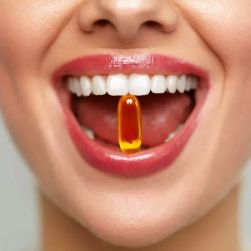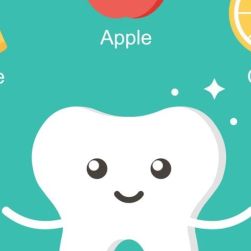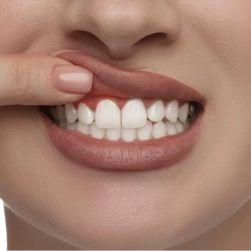Introduction: Diet's Role in Preventing Tooth Decay
When it comes to maintaining oral health, diet plays a pivotal role that is often underestimated. The foods we consume can have a profound effect on our teeth, either fortifying their natural defenses or contributing to decay and cavities. In the United States, where diet-related dental issues are prevalent, understanding the relationship between what we eat and our dental health is crucial.
According to the CDC, dental caries is one of the most common chronic diseases affecting both children and adults. By making conscious choices about our diet, we can significantly reduce the risk of tooth decay. This article explores the best foods for preventing tooth decay and cavities, offering practical dietary suggestions that can be easily incorporated into your daily life.
Whether it’s selecting tea rich in fluoride or opting for dairy products that provide essential calcium, learn how these food choices can help protect your smile. Join us at Dentistry Toothtruth as we delve into the dietary choices that promote optimal oral health.
1. Chew on This: The Benefits of Crunchy Fruits and Vegetables
Fruits and vegetables that are crunchy and fibrous can actually aid in cleaning your teeth while you eat. When you chew crunchy foods like apples, carrots, or celery, they stimulate saliva production, which is essential for the prevention of tooth decay. Saliva acts as a natural rinse for the mouth, washing away food particles and bacteria that contribute to plaque buildup.
Not only do these foods help with the mechanical cleaning of your teeth, but the vitamins and minerals they contain support overall oral health too. Foods such as carrots and celery are packed with Vitamin A, a nutrient critical for maintaining the mucous membranes in your mouth. Incorporating these snacks into your diet is an easy and effective way to improve your oral hygiene naturally.
2. Dairy Delights: The Protective Powers of Calcium-Rich Foods
Dairy products such as milk, cheese, and yogurt are rich in calcium, a mineral vital for maintaining strong teeth. Calcium helps to fortify tooth enamel, making it more resistant to decay and cavities. For growing children and adults alike, ensuring an adequate intake of calcium can prevent the weakening of teeth and bones.
Regular consumption of dairy not only provides the necessary calcium but also contributes to the maintenance of a neutral pH level in the mouth. Cheese, for example, is known to neutralize acids that are left behind by other foods. A serving of dairy with every meal or as a snack can enhance your dental health while providing other nutritional benefits as well.
3. Tea Time: How Fluoride-Rich Beverages Can Make a Difference
Fluoride is a natural defender against tooth decay, and certain teas are a good source of this mineral. Green and black teas contain natural fluoride compounds that can strengthen tooth enamel and prevent the growth of harmful oral bacteria. Drinking unsweetened tea can also help reduce acidity in the mouth, further protecting against decay.
While enjoying your tea, remember to rinse your mouth with water afterward to clear any remaining tannins that might stain teeth. Making tea a part of your daily routine can be a tasty and beneficial habit for your oral health.
4. Nutty and Crunchy: Nut Consumption for Strong Teeth
Nuts such as almonds, walnuts, and cashews are not only nutritious but also great for your teeth. Packed with essential vitamins and minerals like phosphorus, magnesium, and calcium, nuts help to remineralize teeth and keep them robust against decay.
The act of chewing nuts also stimulates saliva production, much like crunchy fruits and vegetables. This natural process of increased saliva flow helps in cleansing the teeth and neutralizing harmful acids in the mouth.
5. Citrus with Caution: The Impact of Acidic Fruits
Citrus fruits like oranges, lemons, and grapefruits are loaded with Vitamin C, necessary for healthy gums and the prevention of gum disease. However, due to their high acid content, they can erode enamel if consumed in excessive amounts.
Limiting the intake of acidic fruits or pairing them with other foods to neutralize their acidity can help protect your teeth. Drinking water after eating citrus fruits and waiting at least 30 minutes before brushing can also prevent potential harm to enamel.
6. Stay Hydrated: Water's Role in Oral Health
Water is an indispensable resource for maintaining oral health. It washes away food particles and reduces the presence of harmful bacteria in the mouth. Staying well-hydrated ensures that saliva production remains at optimal levels, aiding in the natural cleansing process of the mouth.
Drinking fluoridated water adds an additional protective barrier against tooth decay. It’s a simple, cost-effective method to support dental health. Remember to keep a bottle of water handy throughout your day and make it your beverage of choice at meals for the maximum benefit.
Conclusion: Fortify Your Diet for Strong Teeth
Protecting your teeth against decay and cavities is not just about brushing and flossing—what you eat plays a significant role too. By including many of these tooth-friendly foods in your daily diet, you can bolster your oral defenses and enjoy better dental health. Remember, crunchy fruits and vegetables, dairy delights, fluoride-rich beverages, nuts, and appropriate citrus consumption each contribute to a healthier smile.
At Dentistry Toothtruth, we encourage you to make informed dietary choices that benefit both your body and teeth. Stay hydrated, choose wisely, and your oral health will flourish. Begin incorporating these nutrition tips today to pave the way for a lifetime of strong, healthy teeth.






